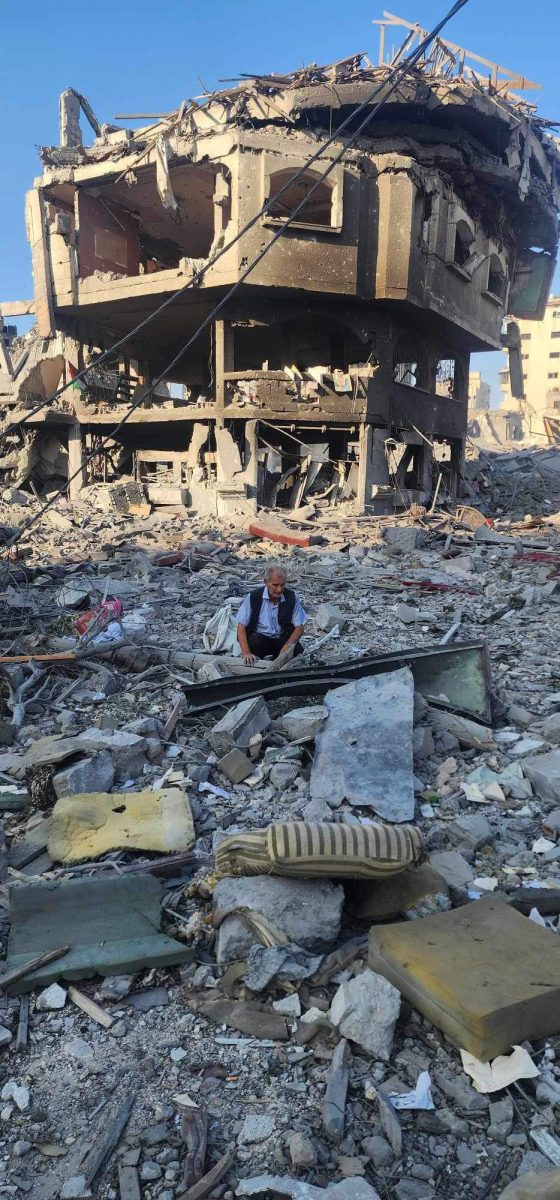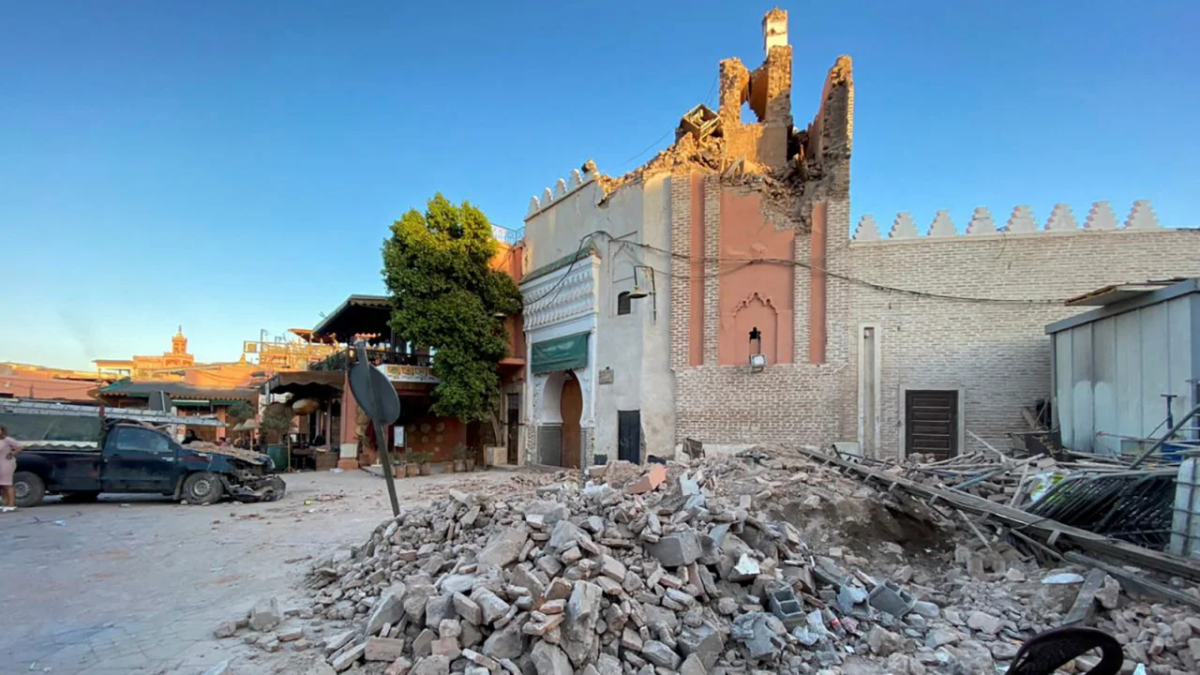A couple of days after the start of the Israel-Palestine war, Sam Barlow student Judy Shahin heard life-altering news. Her family’s homes in Gaza had been bombed, including the house she grew up in. Her family in Gaza is now homeless due to a problem they have not contributed to.
Her family was relocated to Saint Porphyrius Orthodox Church following the initial bombing. After taking shelter there for a few weeks, the church was bombed, killing 20 people.
“We have nothing to do with Hamas, yet we’re getting killed. My family is still in the church; they eat one meal a day, they do not have access to clean water, and sickness is spreading,” says Shahin. Hamas, or the Islamic Resistance Movement, is a terrorist group designated by the United Nations (UN). Hamas has been putting up an armed resistance against Israel for many things, but primarily Israel’s 17-year blockade on Gaza. The terrorist attacks by Hamas have included suicide bombings and rocket attacks.
Due to this conflict, over 10,000 Palestinians have been killed, with more than 4,000 of them being children. Entire neighborhoods have been wiped out, and 50% of homes in Gaza have been destroyed, leaving 1.4 million Palestinians without a home or place to go. To put this into perspective, Gaza is smaller than Portland, but instead of Portland’s 600,000, it boasts 2 million. Many of the people being bombed are civilians, and Israel continues to bomb under the guise that they are killing Hamas terrorists. People in Gaza cannot escape due to restrictions and the blockade.
Israel’s reasoning to support the bombing is that they are killing terrorists, but Judy completely disagrees with their view .“They’re using Hamas as a reason to bomb. If a school shooter was hiding in a school, would you bomb the whole school and kill hundreds of people? Just because of that one person?”
On October 29th, Gaza’s phone network was completely shut off. For two days, the Shahins worried about whether or not their family was alive and well. They had no idea what was happening.
“If they were able to do all that bombing with the media watching, what would they do without the media watching?” said Judy about what her thoughts were in the two days they lost contact. Judy’s most recent update with her family was on October 31st, the day after the phone network was functioning again.
Another problem that the people in Gaza face right now is a lack of supplies due to the blockade and siege Israel has put on Gaza. On October 9th, Israeli Defense Minister Yoav Gallant ordered a complete blockade on Gaza, blocking electricity, food, water, and gas into Gaza.
“We’re fighting animals and are acting accordingly,” Gallant said. Both food and water supplies are scarce, as well as personal hygiene and menstruation products. Judy’s family can only bathe once a week with a bucket of water. The situation is dire, and it will continue to get worse if a ceasefire is not issued between both parties. Innocent citizens do not deserve to be in the middle of a war as casualties.
As for ways to help, boycotting businesses that send money to Israel can help. These businesses include both Starbucks and McDonalds, as well as Google and Amazon. If you would like more information on this topic and businesses to boycott, you can visit BDSmovement.net.




